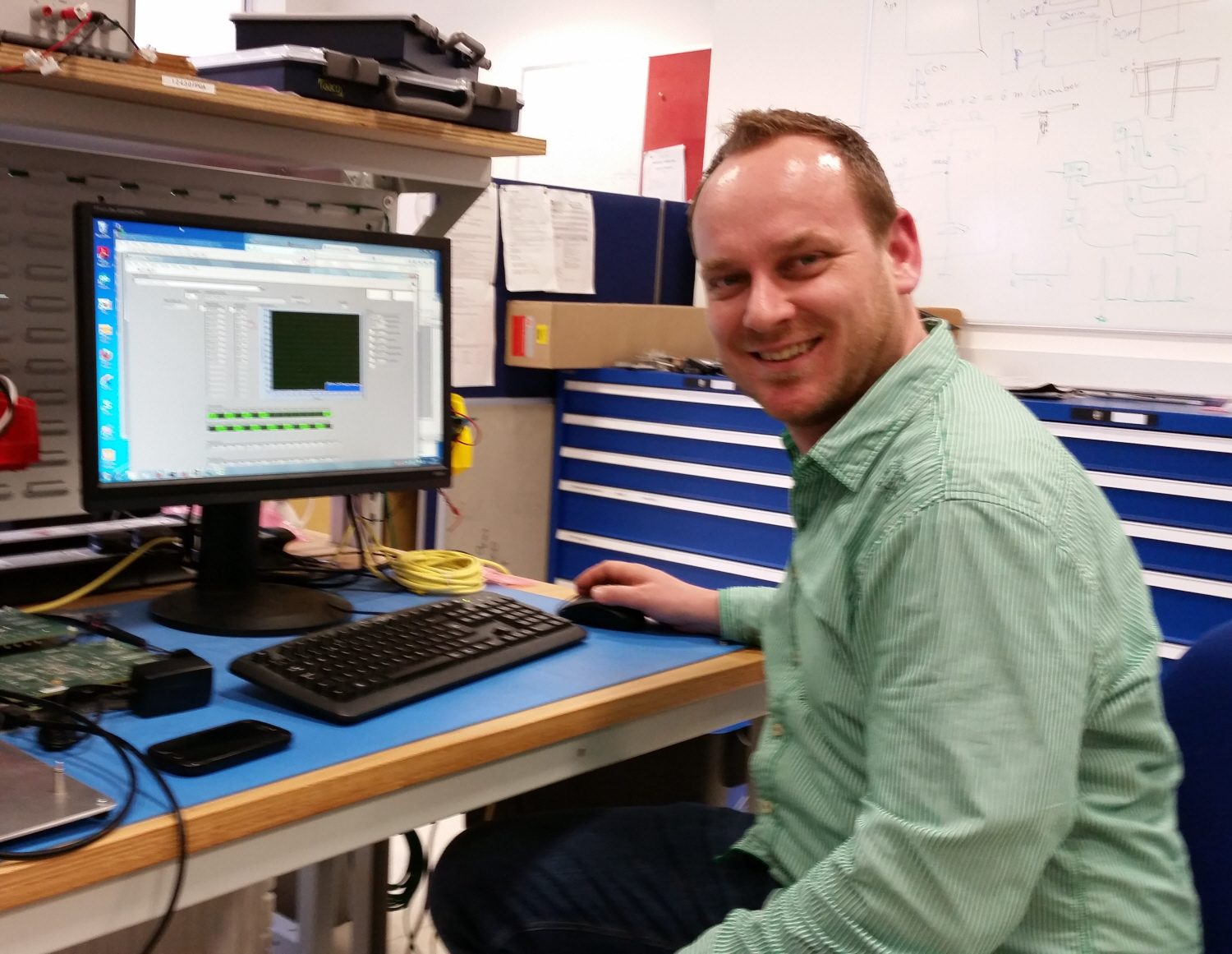Radiation therapy is commonly used to treat cancer patients. It uses high-energy radiation which comes from a machine outside the body to shrink tumours and kill cancer cells. One of the methods of radiation therapy that is currently being used in cancer treatment includes so called Intensity-modulated radiation therapy (IMRT). IMRT allows the intensity and shape of the radiation beams (X-rays) to change during treatment sessions. This kind of dose modulation allows different areas of a tumour or nearby tissues to receive different doses of radiation. The goal of IMRT is to increase the radiation dose to the areas that need it and reduce radiation exposure to specific sensitive areas of surrounding normal tissue.
As the X-ray source and the shaping elements move all the time, it is important to verify continuously that the correct amount of radiation is delivered to the right location. This is very challenging as any detector placed between the source and the patient needs to be extremely thin not to disturb the therapy beam. Supported by the Translation Acceleration and Knowledge Transfer (TRACK) Award from the Elizabeth Blackwell Institute Dr Velthuis’s team was able to further develop the dosimetry capability of the system including designing a novel way to separate the background signal from the X-ray signal, as well as improving the detector performance in real-life situations. The team are currently applying for a patent and are in talks with a range of industrial companies about an industry partnership to further develop their invention. The work performed with the support from the Elizabeth Blackwell Institute has also led to securing an Invention for Innovation (i4i) grant from the National Institute for Health Research to progress the development of the system together with an industry partner, IBA, a company that develops, manufactures and supports medical devices and software solutions for cancer treatment.
